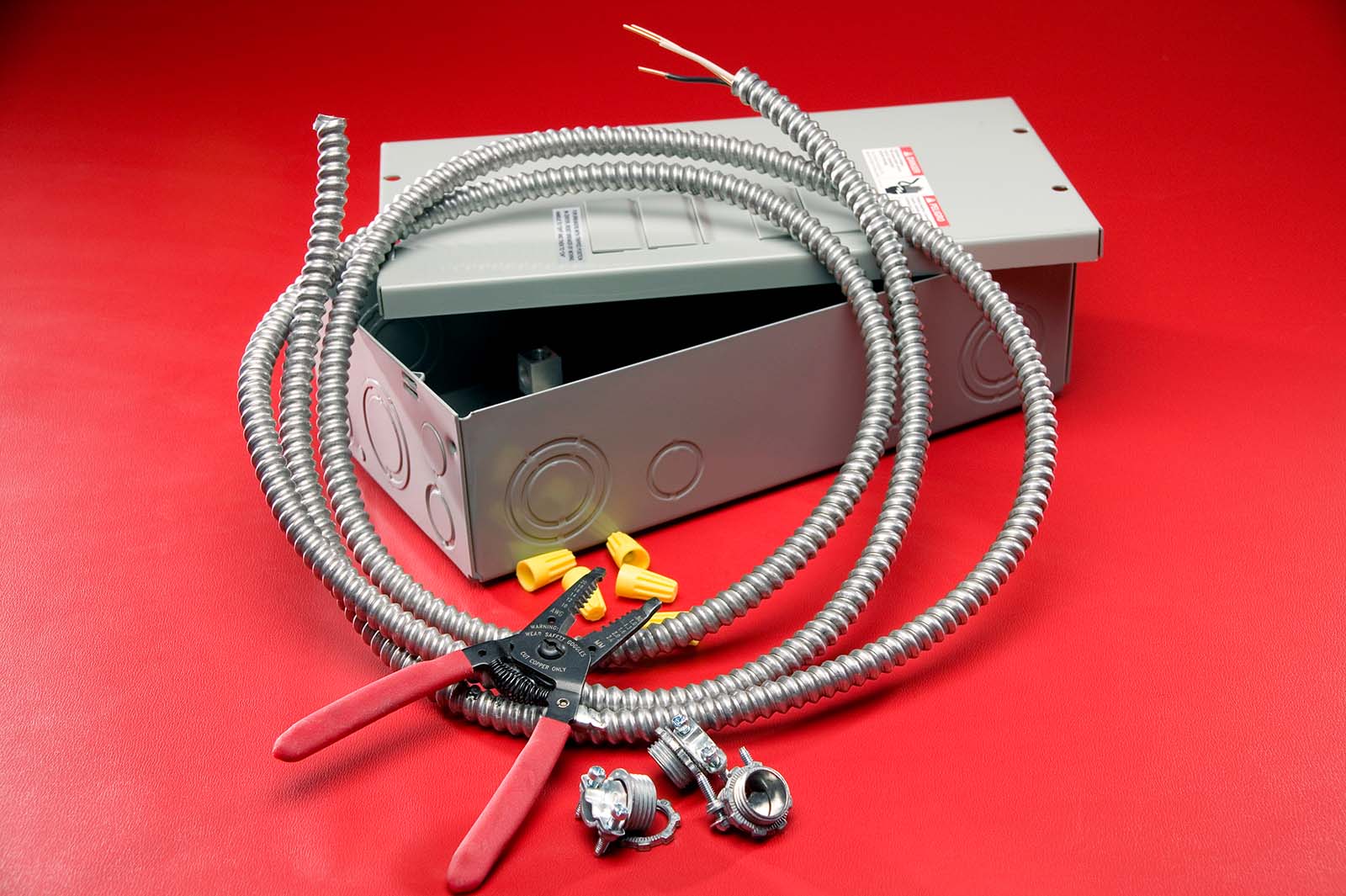When you trust an electrician to do work in your home, you believe that the work they do is going to be up to code. Unfortunately, this is not always the case. An electrical company should be experienced and knowledgeable enough to know whether or not the work they have done would pass an inspection and not have any code violations.

Denny’s Electric Service has over thirty years of experience in electrical work and all of our contractors are very familiar with electrical coding. But, how can you tell whether or not something in your home would be considered an electrical code violation?
We have compiled a list of the top 10 electrical code violations to help you stay informed on what to look for.
-
Having A Permit
Doing electrical work in your home oftentimes requires a permit. This may seem like a mundane detail to follow up on, but it is one of the most common code violations. Not having a permit can halt work on a home until a proper permit is approved. In many cases, this is overlooked by people who are doing their own work in their homes. Asking a knowledgeable electrician can help determine whether or not the work that is being done would require a permit. -
Improper Outlets Near A Water Source
Another common code violation is not having the right outlet installed in an area that is close to a water source. Areas like kitchens, bathrooms, or laundry rooms always have some sort of water source. If an electrical outlet is within six feet of any water source it must be a “Ground Fault Circuit Interrupter” or GFCI outlet. This is a specialized outlet that would prevent electrical shocks and is designed specifically to be installed when there is a water source nearby. Check out our blog here from earlier this year that has more information about GFCI outlets. -
Not Installing Tamper Resistant Receptacles
For anyone who has a new home, or one that is being renovated, every outlet in a home must be a tamper-resistant outlet. In 2014, the National Electrical Code was updated to require receptacles that protect the contact slots in the receptacle. These are usually spring-loaded receptacles that would prevent someone from plugging in something that is not meant to be plugged in and getting shocked. These receptacles are designed with shutters that only block the contacts. Those shutters would move when both openings on the receptacle are being pushed in. The two prongs on a standard plug would compress the springs behind those shutters and allow contact to be made. -
Improper Installation Of Breakers
The electrical panel needs to be brought up to code if it has been installed improperly. When a breaker is constantly tripping, many might assume that a new breaker needs to be installed. Sometimes that may be the case, but not always. Someone who is not well-informed, or someone who is in a rush, may install an improper breaker that can create a host of problems. If a breaker that is installed has a larger capacity than what is needed, this can be very dangerous. Breakers should match the load capacity and have the proper wiring to ensure that they are safe. An improper breaker can cause electricity to be improperly distributed in your home or even start an electrical fire. -
Failing To Install A Neutral Wire
Light switches in your home need to have a neutral wire. A neutral wire is used to complete the 120-volt AC circuit behind your light switch. This is to help prevent unintentional electrocution. In the past, a neutral wire was not required, but with modern homes, every light switch should be set up to include a neutral wire. -
Not Updating Old Wiring
Homes that were built before 1970 may have older electrical wiring that violates electrical code. Before 1970, it was very common to see aluminum wiring used in a home. While aluminum wiring can be considered safe in most cases, it should not be connected to copper wiring. If you have an older home and need to install new wiring in an area, it may be required that all of the wiring in your home be inspected. -
Failing To Properly Cover Outdoor Receptacles
This may sound like something that makes complete sense, but is another common violation that is often overlooked by do-it-yourselfers and inexperienced contractors alike. Receptacles that are on the outside of a hose are exposed to the elements. These outlets need to be protected so they are safe. Outdoor covers should be installed that would protect a receptacle whether or not it is in use. -
Overcrowding Wires
Wiring to light fixtures and electrical outlets run throughout your home. There may be THOUSANDS of feet or wire running through your home. The wiring may have a tendency to move or shift. When this happens, if wiring is overcrowded, it can cause damage to wires leaving them exposed, which can create a fire hazard. Wiring can become hot when electrical current runs through it and it is important that wiring is not overcrowded for this very reason. -
Improper Installation Of Recessed Lighting
When recessed lighting is installed, it sits in your ceiling and could be near insulation. There needs to be enough clearance between the recessed lighting and the insulation around it. Recessed lighting can potentially overheat when it comes in contact with insulation. This may cause the lighting to stop working or even create enough heat to cause the insulation to catch fire. It is possible that you may have to have recessed lighting installed that is rated for contact with insulation. These lights are often referred to as IC-rated lights. -
Not Installing Enough Receptacles
Electrical systems that do not have enough receptacles can become overloaded, which can cause the electricity in your home to not work as intended or create a safety concern. When an area does not have enough receptacles, homeowners will often resort to using extension cords. While this is not necessarily unsafe, extension cords should be used properly. If an area of a home is overloaded because of a lack of receptacles, there may be some tell-tale signs you can look for. Dimming or flickering lights, the breaker for that area constantly tripping, or even a small electric shock when plugging things in can all be signs of an overload.
Electrical code violations are not something to be taken lightly as they oftentimes are put in place for safety reasons. If something is not up to code, it should be corrected immediately to ensure the safety of everyone in that home. Code violations can also cause more than safety concerns for homeowners. They can result in fines being assessed, causing an impact to the overall worth or value of your home, and can even prevent the sale of your home after an inspection.
Denny’s Electric Service is more than happy to address any concerns you may have about whether or not your home has any electrical code violations. We are an electrical company that knows the importance of helping homeowners remain in compliance.
Contact us today to see how we can help determine if your house is up to code!

